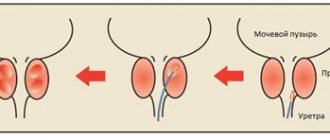Malignant diseases of the prostate are quite common, especially in men over 55 years of age (by its nature, this disease is hormone-dependent, which is why with age, when the production of certain hormones by the body decreases, the likelihood of developing prostate cancer increases).
Like other malignant neoplasms, prostate cancer can form metastases: new foci formed by individual tumor cells that spread throughout the body along with blood or lymph.
Prostate cancer - both in the initial stages and in stages 3 and even 4 - is treated quite successfully at the Elite Medical clinic.
Israeli medicine is one of the leading places in the world. It was here that the first heart transplant was performed; It was here that the world's first birth control pills were developed. Israel ranks first in the field of reproductive medicine and treatment of cardiovascular diseases. And, of course, in the field of cancer treatment.
The main pillars on which the success of Israeli oncology medicine is based are the high professionalism of doctors, very high-quality medical care, the use of innovations in treatment and the latest medical devices, as well as an individual approach to each patient, taking into account not only the general symptoms and condition of the patient , but also the history of the disease (as well as family history), the presence of concomitant diseases and the general condition of the patient’s body.
Our specialists
By contacting the Israeli Elite Medical clinic, you will receive high-quality medical care from leading specialists in the field of prostate cancer treatment - specialists known not only in Israel, but throughout the world.
| Prof. Raanan Berger | Dr. Eliyahu Ghez |
Treatment of metastatic prostate cancer at Elite Medical is performed by such significant specialists as:
- Dr. Eliyahu Gez is a leading urological oncologist and radiotherapist in Israel with about 30 years of experience, a member of the European Society of Oncology and Radiotherapists.
- Prof. Raanan Berger is the director of the Oncology Center, a specialist in prostate, urinary tract, and kidney cancer.
- Dr. Avi Beri is a leading urological surgeon, member of the European and American Urological Associations and the International Society of Endourology.
- Prof. Chaim Matzkin - head. Department of Urology, leading specialist in urological surgery with over 30 years of experience, author of over 130 original scientific articles.
- Prof. Yuza Hen – leading oncourologist, sex therapist, head. Division of sexual dysfunctions of the urology department.
- Dr. Zohar Dotan is a leading specialist in urology and oncourology, conducting extensive research activities in the field of prostate, bladder and kidney cancer, and a developer of minimally invasive treatment methods.
Treatment
The oncologist and urologist, based on the information received and the stage of the disease, select suitable therapy for the patient.
The gold standard is surgical treatment in the form of prostatectomy (a radical treatment method that allows removal of the prostate with seminal vesicles, and, in case of high cancer risk, lymph nodes, in order to exclude metastasis). Minimally invasive methods: cryotherapy, brachytherapy, haifu (HiFu).
Hormonal therapy, radiation therapy.
Each method has its own indications, so treatment is prescribed only by a doctor after an in-person consultation.
Hormone therapy
Hormonal drugs help stop the further development of cancer, in some cases leading to a decrease in the volume of the gland. Therapy sometimes helps to improve the urination process if a man has a problem. Methods of hormonal treatment:
- LHRH agonists – reduce testosterone production.
- Antiandrogen drugs are blockers of the effects of dihydrotestosterone on cancer cells.
- After hormonal therapy, complications often appear in the form of heart failure, impotence or osteoporosis. It is also worth considering that over time the body may get used to hormonal therapy, and it will not be effective. In the worst case, hormonal drugs lead to progression of the process. During therapy, the patient must be under the supervision of a doctor and regularly undergo a PSA blood test.
Organs affected by metastases in prostate cancer
Most often, prostate cancer metastases affect regional lymph nodes or pelvic bones. Simultaneous damage to both lymph nodes and bone tissue occurs quite rarely. With the lymphatic type of metastasis, metastases primarily affect the regional ones, that is, the nearest lymph nodes - these are two lymph nodes located on either side of the prostate. The affected lymph nodes increase in size; when palpated, the patient experiences pain.
Affected lymph nodes can adhere to the surrounding tissues. Distant lymph nodes, such as the cervical ones, can also be affected.
In the last stages of the disease, metastases may form in the bones; They are extremely rarely primary, more often they are secondary. Most often, metastases affect the pelvic bones, femurs and vertebrae (usually lumbar).
With metastases in bone tissue, patients experience discomfort, and sometimes even quite intense pain. To relieve them in the later stages, patients are prescribed narcotic painkillers.
Diagnosis of cancer
To check the condition of the prostate gland, a man needs to visit a urologist, who performs a digital rectal examination through the rectum to identify nodes in the organ. To obtain a complete clinical picture of the prostate, the doctor prescribes a number of studies:
- A blood test to check your prostate-specific antigen (PSA) level. A level above normal - 4 ng/ml may indicate oncology. In this case, additional examination and prostate biopsy are prescribed.
- Ultrasound of the prostate gland using a rectal probe to identify lumps.
- MRI of the pelvic organs. In some cases, CT and PET-CT, radioisotope scans and x-rays.
- Prostate biopsy – obtaining biopsy samples for histological analysis of prostate tissue.
Symptoms of metastatic prostate cancer
Metastatic prostate cancer occurs virtually without syndromes. One of the “alarm bells” may be swelling of the feet or ankles. Swelling in the pelvis can also be a sign of metastatic prostate cancer.
Pelvic pain is a sign that cancer has reached an advanced stage; in this case, more aggressive treatment is prescribed to relieve the symptoms of bone metastases.
Also an important symptom of the development of bone metastases in prostate cancer is hypercalcemia - excess calcium in the blood. The cause of hypercalcemia is the leaching of calcium from bone tissue.
Symptoms that may indicate elevated calcium levels include:
- muscle weakness and general weakness;
- lack of appetite;
- nausea and vomiting;
- constipation;
- depression;
- the occurrence of mental disorders;
- heart rhythm disturbance;
- lowering blood pressure.
The presence of these symptoms does not necessarily indicate hypercalcemia, but should prompt the doctor to refer the patient for a blood calcium level test.
Mechanism of tumor development
Prostate cancer in the first and second stages of development occurs in rare cases. The tumor is usually discovered by chance, as it is asymptomatic.
The first signs of the disease become noticeable when a man develops stage 3 prostate cancer. At this stage, the tumor leaves the boundaries of the prostate capsule, and pathogenic cells spread to nearby tissues. In addition, the tumor becomes large enough to compress the urethra, making it difficult for the patient to empty the bladder. Also at the third stage of development, the tumor begins to metastasize.
Among the characteristic symptoms indicating the presence of a malignant neoplasm are pain, localized mainly in the perineum. Later, metastatic cancer spreads pathogenic cells through the lymphatic and circulatory systems to other organs and bones. One of the first organs affected is...:
- Urinary system, including kidneys;
- testicles;
- intestines.
This can be explained by the fact that these organs are located in close proximity to the cancer.
At the final stage of development, the tumor begins to metastasize to the bone. Initially, the lesion is observed in the pelvis, then in the lumbar spine and ribs. The described process sharply reduces the life expectancy of a person with a cancerous tumor.
Detection of metastases in cases of prostate cancer
There may be no symptoms for metastatic prostate cancer. Therefore, it is often detected when the patient seeks treatment for other conditions or complaints.
The percentage of detection of metastatic prostate cancer during regular examination of the prostate gland is also quite high.
Methods for identifying the exact location of metastases in prostate cancer are:
- radioisotope scanning (used to detect the presence of metastases in the bones);
- CT (computed tomography);
- PET (positron emission tomography);
- magnetic resonance imaging (MRI).
Radioisotope scanning is based on the higher metabolism of cancer cells compared to normal cells. The procedure is performed as follows. A special radioactive substance (usually a radioactive isotope of technetium) is injected into a patient's vein and placed in a special chamber equipped with radiation sensors.
Due to their accelerated metabolism, cancer cells accumulate more radioactive isotopes than other areas; The scanogram shows the focus of accumulation of radioactive substance.
Due to the fact that not only tumor cells have increased metabolism, but also tissue areas affected by infectious and inflammatory processes, after radioisotope scanning, other, clarifying diagnostic methods are used: MRI, computed tomography and positron emission tomography.
Symptoms
It is quite difficult to predict how long you will live with stage IV prostate cancer because each person develops differently. The activity of cell division is influenced by many factors, among which the patient’s age and the state of the immune system are of no small importance.
The following symptoms are some of the most prominent symptoms of prostate dysfunction:
- increased urge to urinate;
- Feeling of incomplete emptying of the bladder;
- Slow flow;
- difficulties in the process of urination.
It should be noted that the symptoms described above are also characteristic of prostatitis (acute and chronic) and adenoma of the prostate gland.
In addition, a clear symptom indicating the onset of metastasis is pain, which is localized in the perineum and lower back. As a malignant tumor grows, cancer cells invade other organs, causing problems in their functioning. As a result, other symptoms appear that indicate a problem with the prostate gland:
- Severe pain in the bones of a constant nature. Conventional painkillers are of little help in these circumstances. A short-term effect is achieved only when taking drugs containing intoxicating substances. A slight swelling may appear where the skin meets the bone.
- Painful sensations in the anus. Blood particles appear in the stool.
- The occurrence of kidney stones, which is also accompanied by severe pain. A characteristic sign of changes in these organs are symptoms characteristic of the inflammatory process. The urine becomes cloudy and small blood clots appear in it.
- General intoxication, characterized by weakness, dry mouth, nausea and vomiting.
- Cough with sputum and blood. The pain is localized in the chest. These signs indicate that cancer cells have entered the lungs.
- In very rare cases, men with prostate cancer may experience mood swings, panic attacks, and memory problems. There may be problems with coordination and numbness in various parts of the body.
Treatment of metastases in bone tissue
In normal healthy bone tissue, two opposing processes occur simultaneously: the formation of bone tissue (osteoblasts) and its destruction (osteoclasts). Due to the increased metabolism caused by metastases, both of these processes are significantly accelerated, which leads the bone tissue to an unstable state. This significantly increases the risk of fractures.
When treating bone metastases, it is very important to maintain adequate levels of calcium and vitamin D - this helps strengthen bone tissue and thus prevent the risk of fracture (or significantly reduce its likelihood). Bisphosphonates are also prescribed to strengthen bone tissue.
The main treatment method for bone metastases is radiation therapy. Radiation affects the area of metastasis, kills cancer cells and relieves pain. Radiation therapy used to treat bone metastases is different from radiotherapy used to treat early stage prostate cancer.
In addition to radiation therapy, the patient is also prescribed radioactive drugs intravenously: spreading along with the blood, they “settle” in the metastases and irradiate the malignant cells.
Thus, the treatment of metastases in bone tissue has 3 goals:
- slowing down the development of the disease;
- pain relief;
- avoiding complications of bone weakening.
Additional services for visiting patients of Elite Medical
By paying $400 for a full package of additional services, patients get rid of problems such as:
- booking air tickets and hotel accommodations;
- searching for a translator who can competently translate the necessary documents about the results
- high costs for telephone calls due to the lack of a local SIM card;
- high costs for daily travel from the hotel to the clinic and back to the hotel.
All these issues will be resolved by Elite Medical employees. You will be met at the airport, taken to your hotel, provided with an Israeli SIM card and organized a daily transfer from hotel to clinic to hotel. In addition, each patient is assigned a Russian-speaking curator who will inform you about the progress of treatment, upcoming procedures and doctor’s appointments.
Prostate tumor stages
| Stage I | No clinical signs. During palpation and instrumental diagnosis, the tumor is not visualized. Malignant neoplasms can be detected by prostate biopsy and histological examination. The indication for a biopsy is an elevated PSA level in the blood. |
| Stage II | Cancerous growths spread within one or two lobes of the prostate. There are no signs of damage to the capsule - the process is localized in the prostate gland. A urologist can detect malignant tumor nodes using a digital rectal examination or an instrumental technique during ultrasound examination. |
| Stage III | Oncogenic cells spread beyond the prostate gland, affecting the tissue that surrounds the organ or the seminal vesicles and bladder neck. |
| IV stage | Malignant neoplasms affect the walls of the pelvis, pelvic muscles, rectum and bladder. |










